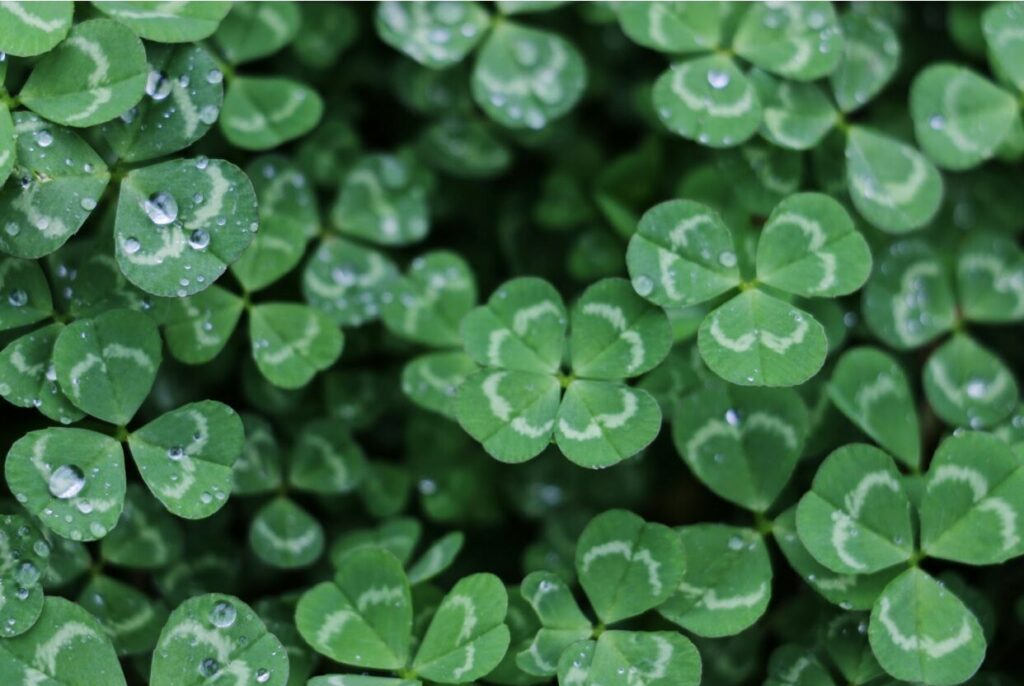Modern landscaping often features traditional grass lawns, but maintaining your lawn can mean a significant investment of time, effort, resources, and money – especially if you pay someone to take care of it for you.
If you’re looking for a lower-maintenance, eco-friendly lawn solution, it may be time to consider clover.
Clover lawns have become popular as more homeowners recognize their advantages over traditional grass. While they offer a distinct aesthetic, clover is a sustainable, low-maintenance ground cover that could perfectly fit your yard.
Let’s explore the pros and cons of a clover lawn.
The Appeal of Clover
One of clover’s biggest draws is its low-maintenance nature. With a slower growth rate than grass, clover requires much less frequent mowing. It’s also drought-tolerant, allowing you to cut back significantly on watering it when the weather fails to cooperate! Plus, clover’s dense growth helps suppress weeds naturally, reducing the need to use nasty chemicals.
In addition, clover is very eco-friendly. It has a unique ability to improve soil fertility without synthetic inputs. It does this by fixing nitrogen from the air, which also attracts bees and butterflies, supporting the health of your lawn.
Considering the Drawbacks
Of course, clover lawns aren’t without their drawbacks. The look and feel of a clover lawn is distinctly different from a traditional grass lawn, featuring a lower, denser ground cover with white flowers when in bloom.
Some find this aesthetic appealing, while others prefer the more uniform look of a grassy lawn. Clover can also lead to an uneven, bumpier lawn surface compared to well-manicured grass.
Another potential downside is clover’s relatively low tolerance for heavy foot traffic compared to sturdy turf grasses. High-traffic areas like play zones or footpaths may be better suited for grass.
It’s also worth noting that because clover attracts pollinators, those with bee allergies or sensitivities may have concerns about a clover lawn.
Making the Clover Choice
When deciding if a clover lawn is suitable for you, carefully consider your property’s sun exposure, soil conditions, foot traffic patterns, and personal preferences.
Clover performs best in full sun to partial shade and prefers well-drained soil. It’s an excellent choice for low-traffic areas but may not be ideal for heavily used lawns.
There are also different clover varieties to explore, from micro-clovers to traditional Dutch white clover, each with its own qualities. Choosing the right variety for your climate and region is key.
The Verdict on Clover Lawns
Clover could be a fantastic solution if you’re seeking a lawn that demands less water, fertilizer, and maintenance while giving back to the environment. With its eco-friendly properties, drought resistance, and ability to attract pollinators, a clover lawn offers many benefits over traditional grass.
However, clover’s distinct look, lower traffic tolerance, and potential for attracting bees may not be the perfect fit for everyone.
Do your research, understand the tradeoffs, and decide if the low-maintenance rewards of a clover lawn align with your landscaping needs and vision.
7 Tips to Make Your Lawn Look Bigger


